Yemen war: Government forces 'not attacking' Hudaydah port
- Published
Yemeni forces backed by a Saudi-led coalition of Gulf states began their assault on Wednesday
Yemen's government has said it will not attack a port critical to aid efforts in the country, as its forces advance on the rebel-held city of Hudaydah.
Foreign Minister Khaled Alyemany said troops and militiamen, who are backed by a Saudi-led coalition, would seek to preserve such key infrastructure.
The port is the principal lifeline for millions of Yemenis at risk of famine.
On Friday, there were fierce clashes between government and Houthi rebel forces to the south of Hudaydah.
Yemen has been devastated by a conflict that escalated in early 2015, when the Houthis seized control of much of the west of the country, including the capital Sanaa, and forced President Abdrabbuh Mansour Hadi to flee abroad.
Alarmed by the rise of a group they saw as an Iranian proxy, Saudi Arabia and eight other Arab states intervened in an attempt to restore Mr Hadi's government.
Almost 10,000 people - two-thirds of them civilians - have been killed and 55,000 others injured in the fighting, according to the United Nations.
The conflict and a partial blockade by the coalition have also left 22 million people in need of humanitarian aid, created the world's largest food emergency, and led to a cholera outbreak that is thought to have killed 2,290 people.
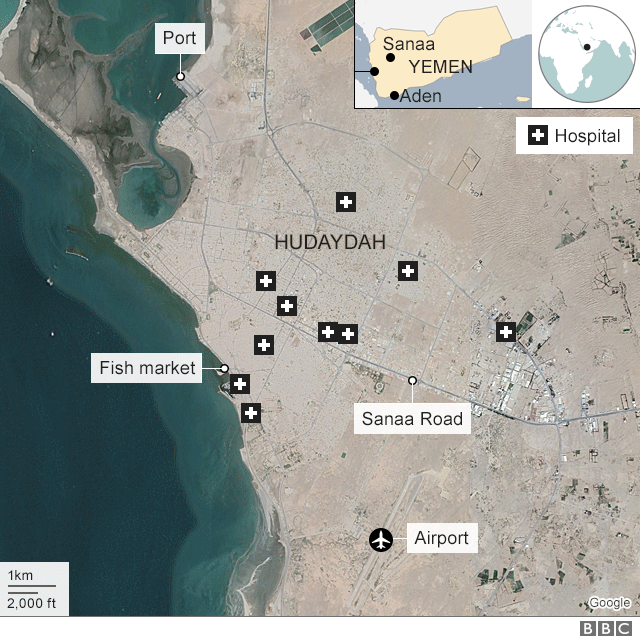

The offensive on Hudaydah, which is being led by the United Arab Emirates, began two days ago.
On Friday, UAE officials told the BBC that pro-government forces had "punched through" Houthi defences in a fertile area south of the city and reached the edge of the international airport.
The officials insisted that everything so far was "going to plan".

Key strategic goal
By Frank Gardner, BBC security correspondent, Abu Dhabi
As ever, there are two conflicting versions of events on the ground on Hudaydah.
Upbeat statements here in the Gulf talk of the coalition reaching the airport and of relentless pounding of Houthi defensive positions south of the city. But the Houthi rebels appear to be digging in for a long haul and are calling for reinforcements to defend Hudaydah from the advancing pro-government troops.
Unless the Houthis capitulate and withdraw their forces from the city, the coalition will be forced to decide whether to risk going into the city and fighting street by street, or waiting it out on the outskirts with a prolonged siege. Either scenario is likely to see further suffering for Yemen's impoverished population.
But for Saudi Arabia, the United Arab Emirates and the Yemeni government, Hudaydah is a prize they cannot afford to give up on. Their strategic goal is to force the Houthis out of it, thereby depriving them of their main source of revenue and compelling them to sue for peace.

However, Yemeni officials told the Associated Press that dozens of pro-government fighters had been killed in the battle, external, most of them by landmines and roadside bombs planted by the rebels. They did not give an exact toll.
Medical sources told AFP news agency at least 139 combatants - most of them Houthis - had been killed.
The International Committee of the Red Cross (ICRC) meanwhile said it expected tens of thousands of people to flee the city in the coming days. Those who planned to stay were stocking up on food and fuel in anticipation of a siege, it added.
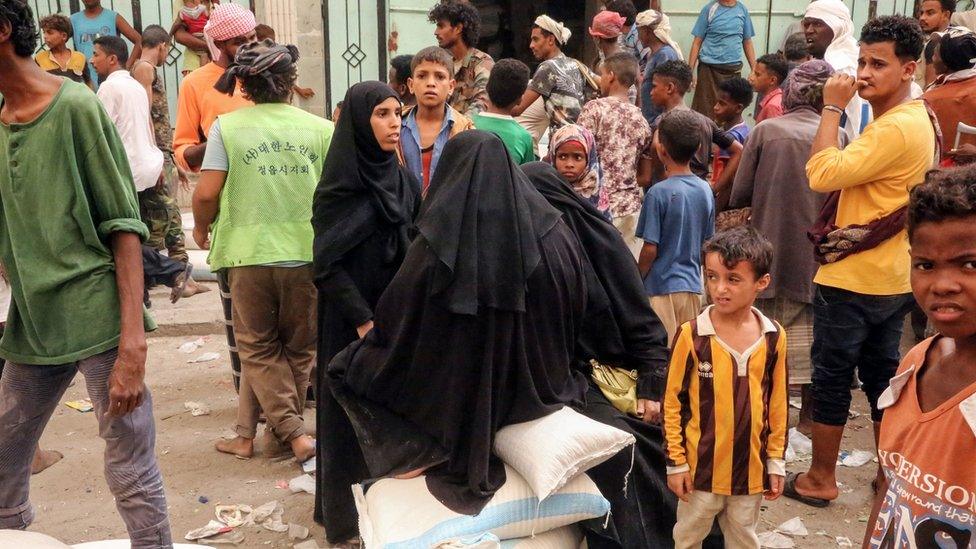
Hudaydah's port is the lifeline for just under two-thirds of Yemen's population
The organisation also reported that local hospitals were unable to function properly because there was no electricity supply and a lack of fuel for back-up generators.
In addition to being one of Yemen's most densely populated areas, with an estimated population of 600,000, Hudaydah is the single most important point of entry in Yemen for the food and basic supplies needed to prevent a famine.
Allow X content?
This article contains content provided by X. We ask for your permission before anything is loaded, as they may be using cookies and other technologies. You may want to read X’s cookie policy, external and privacy policy, external before accepting. To view this content choose ‘accept and continue’.
Allow X content?
This article contains content provided by X. We ask for your permission before anything is loaded, as they may be using cookies and other technologies. You may want to read X’s cookie policy, external and privacy policy, external before accepting. To view this content choose ‘accept and continue’.
The UN has warned that in a worst-case scenario, the battle for the city could cost up to 250,000 lives, as well as cut off aid supplies to millions of people elsewhere.
On Thursday, the UN Security Council urged all parties to the conflict to ensure that Hudaydah's port is kept open. But there was not enough support among members of the council for a call from Sweden for an immediate freeze to the assault.

Learn more about Yemen's war

The UN's World Food Programme reported that the seaport was still operational, and that its staff were still working and distributing food.
Executive Director David Beasley said all parties had "to meet their obligations to protect civilians and civilian infrastructure and take active steps to respect international humanitarian law".
Former child soldiers, a landmine survivor and an internally displaced child tell their stories
Meanwhile, Saudi-owned news channel Al Arabiya said Yemeni President Abdrabbuh Mansour Hadi had returned to the temporary capital of Aden to oversee the battle for Hudaydah.
"The hour of victory is close and the return of justice is nearing that will lead to the triumph of the will of the Yemeni people," he was quoted as saying on arrival.
Rebel leader Abdul Malik al-Houthi meanwhile urged his supporters to mobilise to defend Hudaydah, threatening to turn the area into a "quagmire for the invaders".
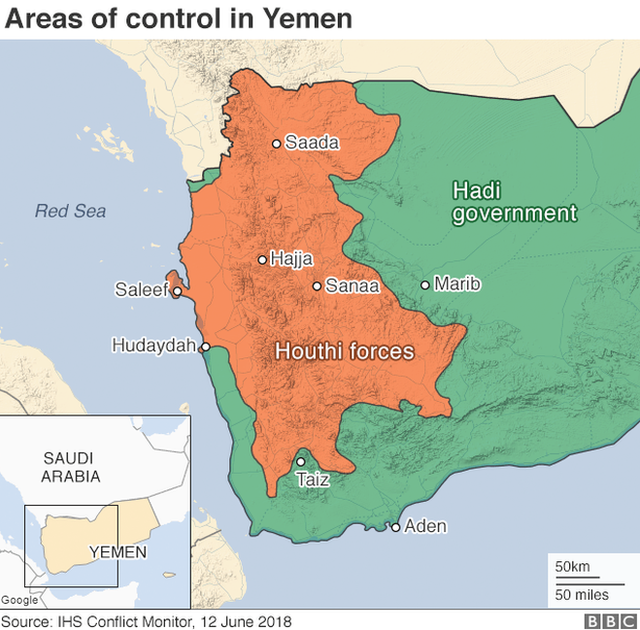

- Published15 June 2018
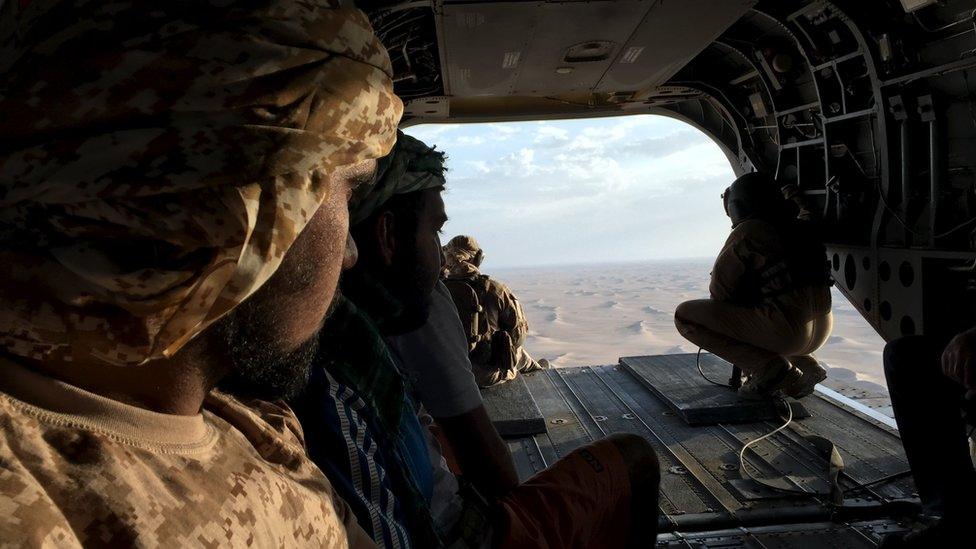
- Published13 June 2018
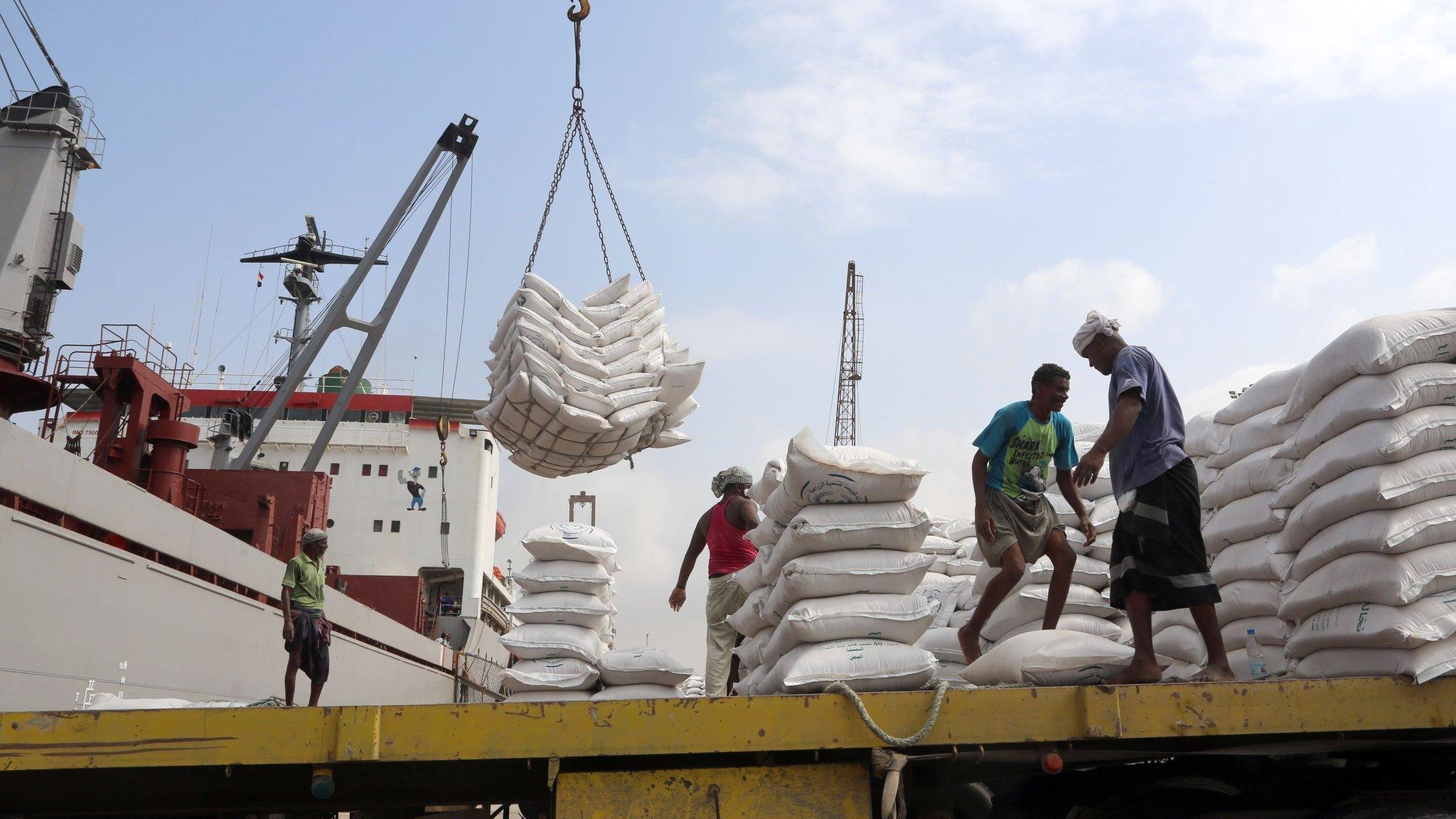
- Published13 June 2018
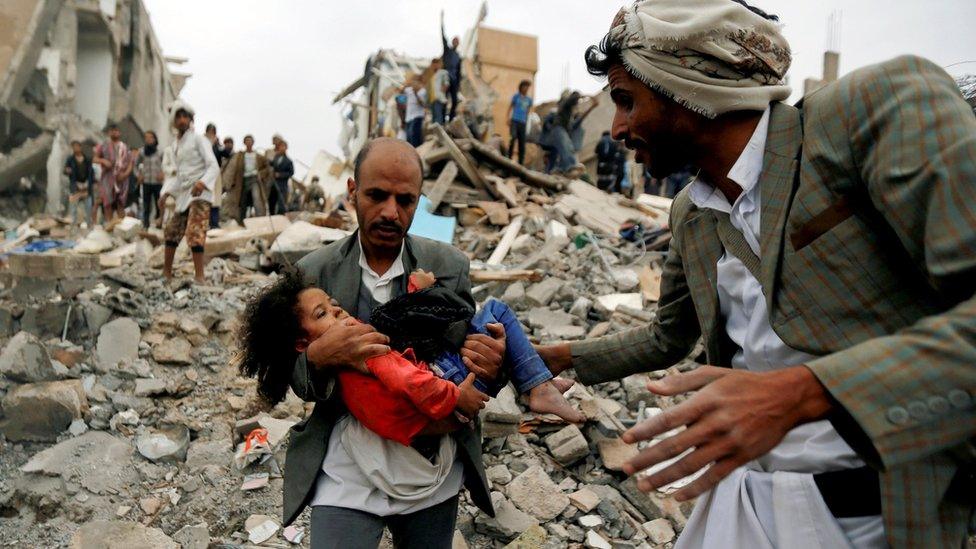
- Published9 November 2017
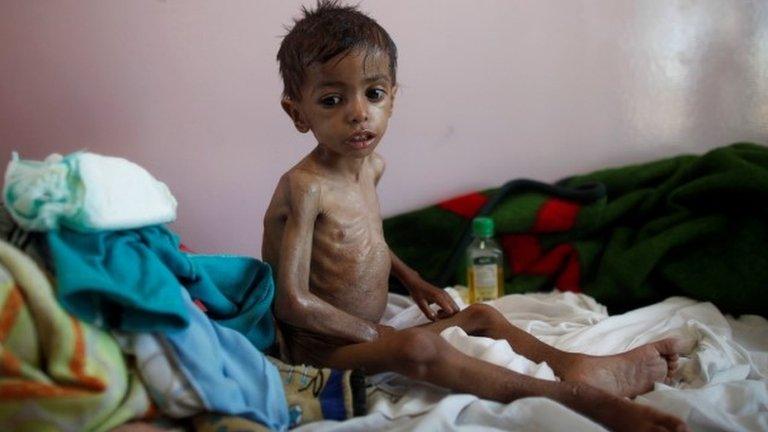
- Published7 November 2017
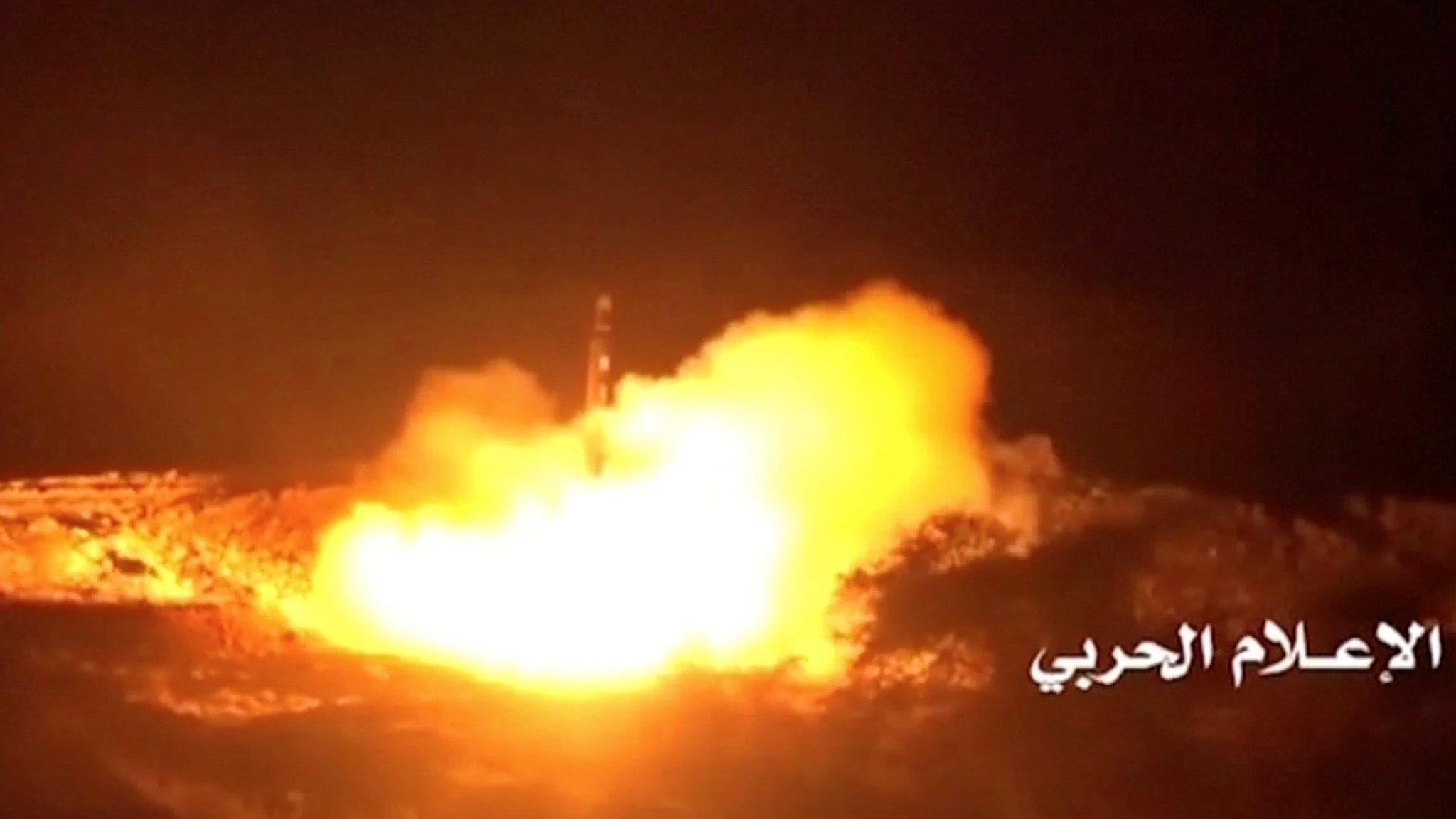
- Published6 November 2017
- Published23 August 2017
